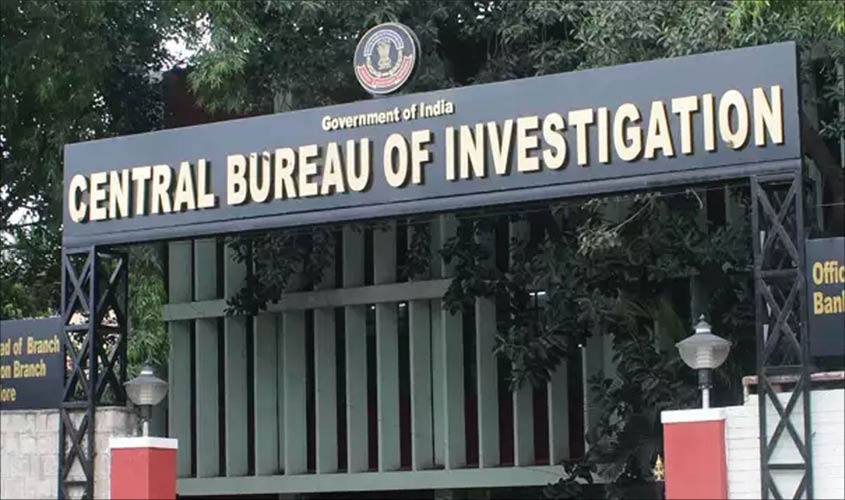High stakes are involved in the selection of the next chief of the Central Bureau of Investigation, but Prime Minister Narendra Modi has limited options to choose from. The stakes are high because a perception has grown that behind the convoluted “CBI versus CBI” war, the agenda was to target certain officers of the Prime Minister’s Office perceived to be close to PM Modi. The weakening of these officers would have weakened PM Modi. This perception would make the PMO edgy while selecting the next CBI chief.
Also, the selection process will be among the most difficult undertaken by the Modi government, as it will have to counter the perception that in selecting talented candidates for sensitive posts, it is making many mistakes.
According to sources in the government, the establishment is waiting for the Supreme Court’s final judgement on the allegations against current chief Alok Verma, who has been asked to go on leave.
Whatever be the Supreme Court judgement, the government will have to prepare soon a short list to select the new CBI chief, who will have a fixed tenure of two years—that is until 1 February 2021.
The fixed tenure makes the Modi government’s vulnerability in selection of the CBI chief more pronounced as the Lok Sabha elections are scheduled for May 2019. Whoever comes to power at the Centre after the Lok Sabha elections, will have to work with the sitting CBI chief.
PM Modi, Opposition leader Mallikarjun Kharge and Chief Justice Ranjan Gogoi will select the new chief of CBI anytime before the last week of January, as Verma’s tenure ends on 1 February 2019.
Due to the CBI’s internal politics, Rakesh Asthana has suffered a setback in the battle of perceptions, which makes it difficult for the government to make him a natural candidate for inclusion in the shortlist for the most coveted post in the agency. Unless the FIR against him, filed by his own organisation, is quashed and termed mala fide, he cannot get back in the game.
Therefore, Asthana’s destiny will be decided only after the Supreme Court judgement on Chief Vigilance Commissioner K.V. Chowdary’s investigation against Verma, under the supervision of retired Supreme Court Justice A.K. Patnaik.
The government is searching for suitable names from the 1982 to 1985 batches of IPS and five names carry weight in this high stakes game.
One name that got circulated quite early was of Delhi Police Commissioner Amulya Patnaik. In the Modi government, the “Oriya lobby” is dominant, so Patnaik’s name carries weight. His supporters are trying hard to get the support of what’s called the “saffron lobby” comprising RSS ideologues.
The name of 1984 batch IPS, Rajni Kant Mishra, who is the chief of the Border Security Force, is being pushed by many. Mishra is perceived to be close to Home Minister Rajnath Singh.
Rajesh Ranjan, another 1984 batch officer, is chief of the Central Industrial Security Force. He is also an option before the government. He is considered to be close to Bihar Chief Minister Nitish Kumar and Janata Dal United minister Lalan Singh.
O.P. Singh, the 1983 batch IPS officer, is Director General of Police in Uttar Pradesh. He is well-entrenched in North India’s famous Thakur network and many think that he can make it to the short list, at least.
Y.C. Modi, a 1984 batch officer and chief of the National Investigation Agency is being talked about the most. Modi was working in tandem with Verma when he and Asthana were both Additional Directors in the CBI under Verma. At the time, Verma was targeting Asthana to ensure that his chances got weakened to such an extent that it became impossible for the government to make him the next CBI chief. Modi complains that Asthana was instrumental behind his transfer out of the CBI. However, Y.C. Modi’s weak link is his perceived closeness to Verma.
Amid this, the question is: has Asthana lost out completely? Surely, in public perception, both he and Verma are being accused of sullying the image of the CBI.
It is a fact that much before the FIR against Asthana was filed by the CBI under Alok Verma’s instructions, Asthana moved against his boss, seeking to become some sort of a whistle-blower. Even at the time, Asthana being a veteran investigator should have known that he was putting his future at risk. No government officer puts anything in writing unless he/she is sure that it’s a must. As a result, subsequent events unfolded in such a way that Asthana is now facing hard times.
The Supreme Court is looking into the allegations against Verma levelled by Asthana in his note of 24 August 2018, addressed to Cabinet Secretary P.K. Sinha. Asthana’s note was forwarded to CVC K.V. Chowdary by Sinha. The CVC’s office claims that Verma refused to part with the documents demanded by them, and before the CVC could act further, Verma booked Asthana in a counter-move and shook up New Delhi.
Asthana’s prospects have got unwittingly intertwined with the case against Verma. The judgement and narrative that will emerge post the judgement in the CBI case, will lock or unlock Asthana’s fortune.

